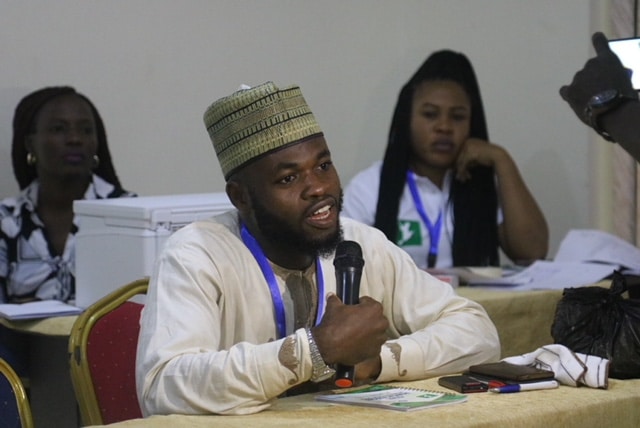

Assessing conflict drivers and reframing radicalization in Northern Nigeria
This innovative report outlines the pathways to reframe radicalization through interactive discourse, informative programming and empowering youth to engage in positive civic engagement.
A Project of —
Nigeria, Building Peace & Transforming Extremism, Research & Learning, US State Department

Project Mission — To create positive social change for millions of under-served people across Northern Nigeria, by providing critically needed information and education through innovative media appropriate technology and direct community engagement.
In Northern Nigeria, violent extremism has claimed over 30,000 lives; displaced over two million people, and destroyed billions of dollars’ worth of personal and public property. EAI efforts to counter violent extremism in the region informed this detailed research report on the White Dove (Farar Tattabara) project – which inspires youth to take leadership roles through radio programs, community listening and discussion groups, and pathways to gain skills to influence policy and improve economic opportunities. This report is an ideal resource for practitioners working with youth to counter violent extremism and others seeking innovative ways to reframe radicalization.
In 2017, two teams of Equal Access-Nigeria staff led formative field research trips across northern Nigeria. Over two weeks, they conducted hundreds of hours of interviews with a diverse range of respondents in 10 northern states and Abuja. This field research was informed by an in-depth literature review that provided background information on the changing CVE (countering violent extremism) dynamics in northern Nigeria, the latest CVE theories of change, and helped to situate field research within a social and behavior change communication framework.
This formative field research established a baseline understanding of evolving conflict dynamics in northern Nigeria and informed the framework and content of EAI’s CVE-focused Hausa-language radio platform, Farar Tattabara (“White Dove”).
This research identified several recurring and intersecting themes relevant to CVE efforts, which represent many of the core challenges faced by northern Nigerians today. This briefing paper analyzes and discusses those challenges and their implications for CVE radio programming and behavior change communication.
A central finding from the desk and field research is the need to re-frame radicalization in discourse, research, policies, and programs, including radio, in more inclusive and empowering ways. As some experts have said – and we agree – we must allow youth and communities to be radical in the fight against violent radicalization.
“We suggest a conceptual shift away from approaches that only emphasize ‘de-radicalization’ and ‘countering’ violent extremism to approaches that ‘re-frame radicalization’ to take into account human potential, unique leadership abilities, the potential predisposition of some ‘radicals’ towards self-efficacy, agency, and empowerment, and the need to create alternative pathways in closed societies for frustrated individuals to engage in positive social change.”